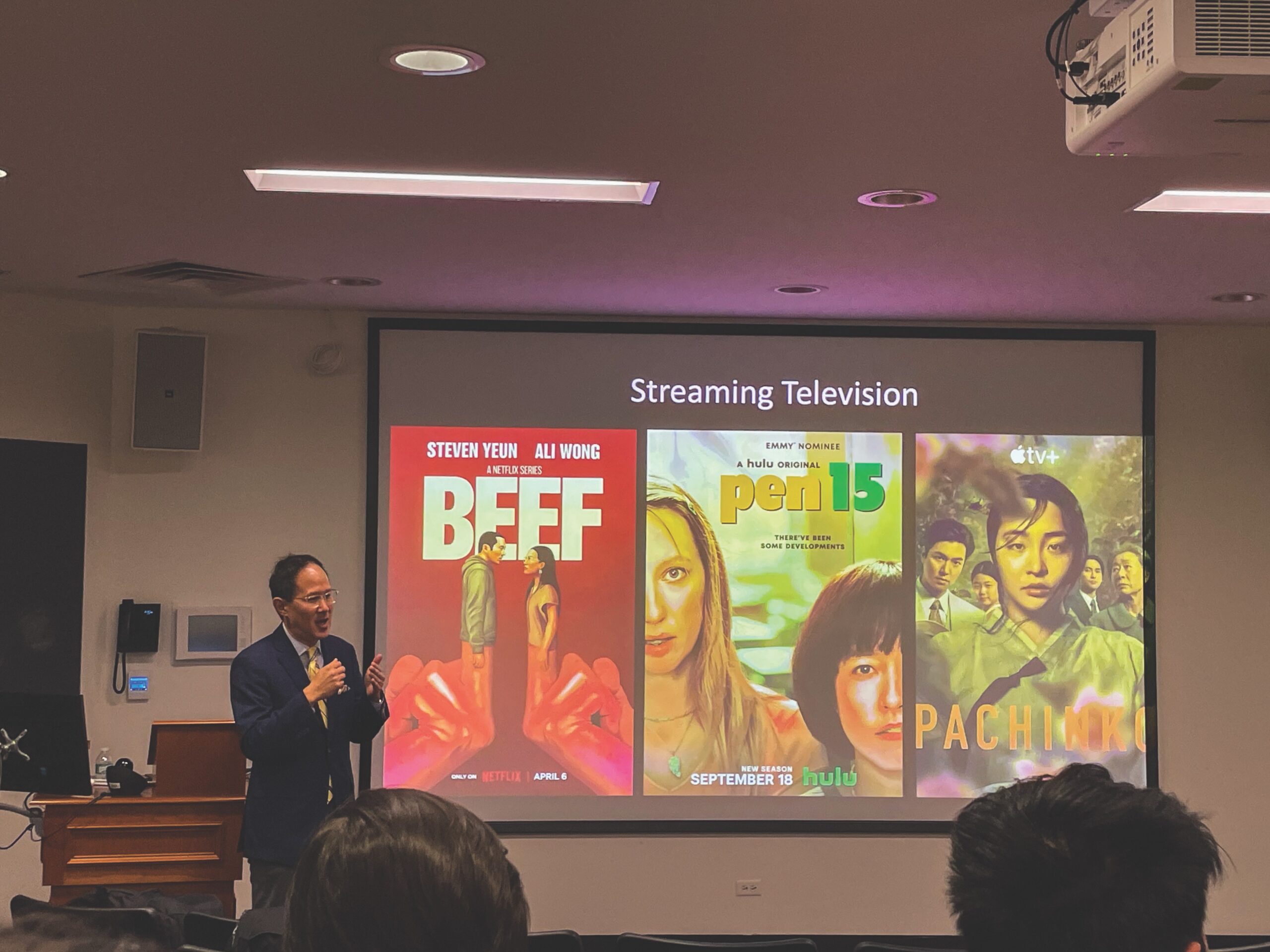Peter Feng lectures on Asian American representation in media
November 10, 2023
 Courtesy of Hannah Kim
Courtesy of Hannah KimLast Friday, the College hosted author and associate professor of english and women and gender studies at the University of Delaware Peter X. Feng, who delivered a talk about challenges facing Asian American representation in media. This lecture was part of the Asian American Reckonings initiative taking place on campus this year.
Through a film series, course offerings, lectures across multiple disciplines and a forthcoming exhibition at the Bowdoin College Museum of Art, the initiative aims to amplify Asian American voices and perspectives.
Professor of Asian Studies and Cinema Studies Shu-chin Tsui, who brought Feng to campus, emphasized that Asian American Reckonings came out of a long-planned and close collaboration of five faculty members across multiple disciplines.
Feng was the second lecturer Tsui hosted this semester: Last month, Asian American Reckonings welcomed filmmaker-scholar Renee Tajima-Peña, who gave a talk entitled “Filmmaking as Resistance.” Tsui is currently teaching a course called Asian American Cinema in which students engage with Feng’s work.
After arriving at the College, Feng gave high praise to the coordinators of Asian American Reckonings.
“The work going on at Bowdoin College is something for everyone to be excited about,” Feng said.
In his talk, Feng discussed how Asian American representation in media, specifically television, has been hampered.
“What is the connection of the representation of race to the business model [of the entertainment industry]?” Feng questioned.
While he lacks a complete answer to his query, Feng outlined how, in many instances, Asian American representation has improved through governmental policy changes and financial incentives for industry employers.
Feng cited mentorship programs that existed in many of the large television networks that aimed to promote diversity in writers’ rooms. In reality, Feng said that these programs were unsuccessful in diversifying the industry’s upper echelons.
“[Hires in these programs] never [got] promoted,” Feng said. “This [was] not a model primed for success.”
Feng added that it took more drastic changes in networks’ policies to actually promote diversity in the higher ranks of leadership, whereas the initial programs only diversified entry-level positions.
Student attendees responded positively to Feng’s perspective on the entertainment industry.
“It was interesting to see his thoughts about Asian American Cinema and how it changed through the decades as well as how the representation has changed,” Luv Kataria ’24 said.
Hannah Kim ’24, a student assistant for Asian American Reckonings, agreed.
“I think it was great to have a scholar like Peter Feng come and talk about the topic because sometimes I see advertisements calling for diverse writers to bring them into a company, and I think that is great, but I don’t hear about anything after that,” Kim said.
Kim added that the lecture reflects the broad spectrum of the initiative’s reach.
“For me as a student, it really exemplifies the interdisciplinary nature of scholarship. We are all here in a liberal arts college, and we’re encouraged to look beyond a single field and collaborate with different peers and professors, and this is an initiative that really demonstrates that.”

Comments
Before submitting a comment, please review our comment policy. Some key points from the policy: